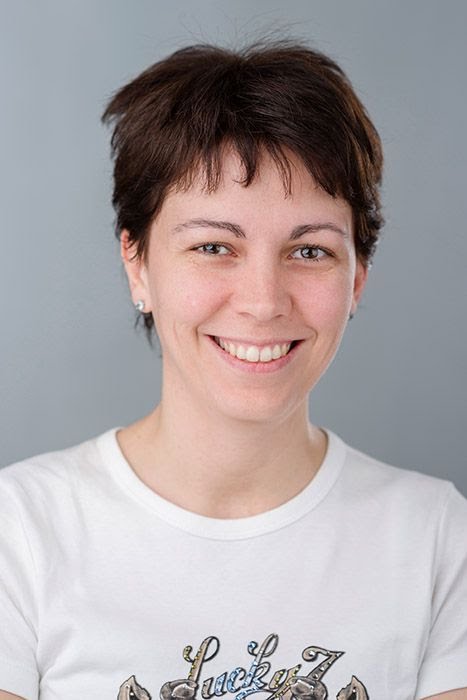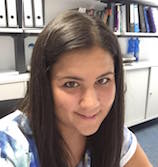Studying at the University of Verona
Here you can find information on the organisational aspects of the Programme, lecture timetables, learning activities and useful contact details for your time at the University, from enrolment to graduation.
Academic calendar
The academic calendar shows the deadlines and scheduled events that are relevant to students, teaching and technical-administrative staff of the University. Public holidays and University closures are also indicated. The academic year normally begins on 1 October each year and ends on 30 September of the following year.
Course calendar
The Academic Calendar sets out the degree programme lecture and exam timetables, as well as the relevant university closure dates..
| Period | From | To |
|---|---|---|
| primo semestre | Sep 14, 2015 | Jan 8, 2016 |
| secondo semestre triennali | Feb 15, 2016 | Jun 1, 2016 |
| Session | From | To |
|---|---|---|
| appelli sessione invernale | Jan 11, 2016 | Feb 13, 2016 |
| prove intermedie secondo semestre | Apr 11, 2016 | Apr 15, 2016 |
| appelli sessione estiva | Jun 6, 2016 | Jul 9, 2016 |
| Appelli sessione autunnale | Aug 29, 2016 | Sep 16, 2016 |
| prove intermedie primo semestre | Nov 2, 2016 | Nov 6, 2016 |
| Session | From | To |
|---|---|---|
| sessione autunnale | Dec 11, 2015 | Dec 18, 2015 |
| sessione invernale | Apr 6, 2016 | Apr 8, 2016 |
| sessione estiva | Sep 13, 2016 | Sep 14, 2016 |
| Period | From | To |
|---|---|---|
| vacanze natalizie | Dec 23, 2015 | Jan 5, 2016 |
| vacanze pasquali | Mar 25, 2016 | Mar 29, 2016 |
| vacanze estive | Aug 8, 2016 | Aug 27, 2016 |
Exam calendar
Exam dates and rounds are managed by the relevant Economics Teaching and Student Services Unit.
To view all the exam sessions available, please use the Exam dashboard on ESSE3.
If you forgot your login details or have problems logging in, please contact the relevant IT HelpDesk, or check the login details recovery web page.
Academic staff
 claudio.baccarani@univr.it
claudio.baccarani@univr.it
Borello Giuliana
 giuliana.borello@univr.it
giuliana.borello@univr.it
 045 802 8493
045 802 8493
 simona.gamba@univr.it
simona.gamba@univr.it
Study Plan
The Study Plan includes all modules, teaching and learning activities that each student will need to undertake during their time at the University.
Please select your Study Plan based on your enrollment year.
1° Year
| Modules | Credits | TAF | SSD |
|---|
2° Year activated in the A.Y. 2016/2017
| Modules | Credits | TAF | SSD |
|---|
3° Year activated in the A.Y. 2017/2018
| Modules | Credits | TAF | SSD |
|---|
| Modules | Credits | TAF | SSD |
|---|
| Modules | Credits | TAF | SSD |
|---|
| Modules | Credits | TAF | SSD |
|---|
| Modules | Credits | TAF | SSD |
|---|
Legend | Type of training activity (TTA)
TAF (Type of Educational Activity) All courses and activities are classified into different types of educational activities, indicated by a letter.
Mathematics for Economics and Finance (2017/2018)
Teaching code
4S02835
Teacher
Coordinator
Credits
6
Language
Italian
Scientific Disciplinary Sector (SSD)
MAT/09 - OPERATIONS RESEARCH
Period
Primo Semestre Triennali dal Sep 18, 2017 al Jan 12, 2018.
Learning outcomes
The teaching aims to provide knowledge of basic quantitative tools and classic mathematical models
for the analysis and evaluation of the main economic-financial operations, of the financing contracts
and investment projects, tools and models that can be used for an efficient business management.
At the end of the lessons, the student must be able to correctly represent an economic and financial problem in a mathematical model, evaluating it so it takes into account the right hypotheses, the correct choice of the mathematical expressions and the correct methodology for solving the problem; therefore, the teaching aims to develop the capacity for autonomous reasoning in the analysis and interpretation of concrete problems.
Prerequisites
While there will be no formal prerequisites to make profitable learning, you should have already passed the exam of Mathematics, the first year, and of Statistics, in the second year.
Program
1. Read and financial regimes
Financial transactions: capitalization and discounting. Financial laws: upright, present value, interest, discount, interest rate and discount rate. Regime of simple interest, capitalization several times a year, compound, the discount trade. Interest rates equivalent to periods other than the year. Financial arbitrage, severability of financial laws, spot rate, forward rates. Force of interest. Currency transactions. Nominal interest rates, inflation, real interest rates.
2. Compound Financial transactions
Financial transactions and their classification. Current value and upright of a set of financial movements. Net present value (NPV or NPV). Evaluation of the installment, the number of installments, the implicit rate (IRR). Consumer credit, TAN and APR. Amortization schedules and closing conditions. Straight-capital basis, in equal installments on a straight interest paid in advance, with shares of accumulation. The pre-amortization. Early repayment of a mortgage. Rate mortgages indexed. Financial leasing. Savings plans.
Bonds and evaluation of the price of a bond, estimates of the term structure of interest rates. Control / hedging of interest rate risk: duration and convexity.
Criteria for choosing between operations / financial projects: NPV, IRR, TRM, WACC.
3. Select Portfolio with two risky assets
Recall of probability theory: the mean, variance, correlation. Investment in assets yielding haphazard. Expected return and volatility / risk of a portfolio of assets. Risk aversion and Markowitz model. Return and risk of a portfolio: a random and activities in return for a certain yield, two activities to yield uncertain, two activities to yield randomly and a certain return. Capital Allocation Line. Capital Market Line.
Textbooks
➢ G. Scandolo, Matematica Finanziaria, Amon, Padova, 2013 (for the chapters concerned by the themes of points of the program) and Matematica Finanziaria: esercizi, Amon, Padova, 2013.
In addition:
➢ for the synthesis and theoretical exercises about steps 1 and 2 is recommended:
A. Basso, P. Pianca, Introduzione alla Matematica Finanziaria, Cedam, Padova, 2010.
➢ as in Step 3 can also be seen:
F. Rossi, F. Mantovani, Teoria del portafoglio (diversificazione degli investimenti e controllo del profilo rendimento-rischio), Monduzzi Publisher, 2010, pages 1-46 and 75-86.
Teaching material is available online by accessing the web page of the course.
The conduct of the lessons
The course consists of 48 hours of lectures. There are also the hours of tutoring.
| Author | Title | Publishing house | Year | ISBN | Notes |
|---|---|---|---|---|---|
| Basso A., Pianca P. | Introduzione alla Matematica Finanziaria | CEDAM | 2010 | ||
| Scandolo Giacomo | Matematica Finanziaria | Amon | 2013 | ||
| Scandolo Giacomo | Matematica finanziaria - Esercizi | Amon | 2013 |
Examination Methods
There is no intermediate assessment test.
At the end of the lessons, a final two-hour written exam is scheduled. The final written test covers all the topics in the program, it is divided into several questions inspired by the examples presented in the classroom as well as those contained in the material available online. The student must be provided with a calculator and the formula sheet, available online, formula sheet that, of course, must not contain additional information, otherwise there will be exclusion from the test.
The tests are aimed at ascertaining:
- knowledge of the topics in the program
- the ability to apply methods and models to the various economic-financial problems
The Commission may request an oral integration aimed at verifying:
- the depth and breadth of the acquired knowledge;
- the property of language;
- the ability to connect knowledge in a systemic way.
Type D and Type F activities
Modules not yet included
Career prospects
Module/Programme news
News for students
There you will find information, resources and services useful during your time at the University (Student’s exam record, your study plan on ESSE3, Distance Learning courses, university email account, office forms, administrative procedures, etc.). You can log into MyUnivr with your GIA login details: only in this way will you be able to receive notification of all the notices from your teachers and your secretariat via email and soon also via the Univr app.
Graduation
List of theses and work experience proposals
| theses proposals | Research area |
|---|---|
| Proposte di tesi triennali | Various topics |


























